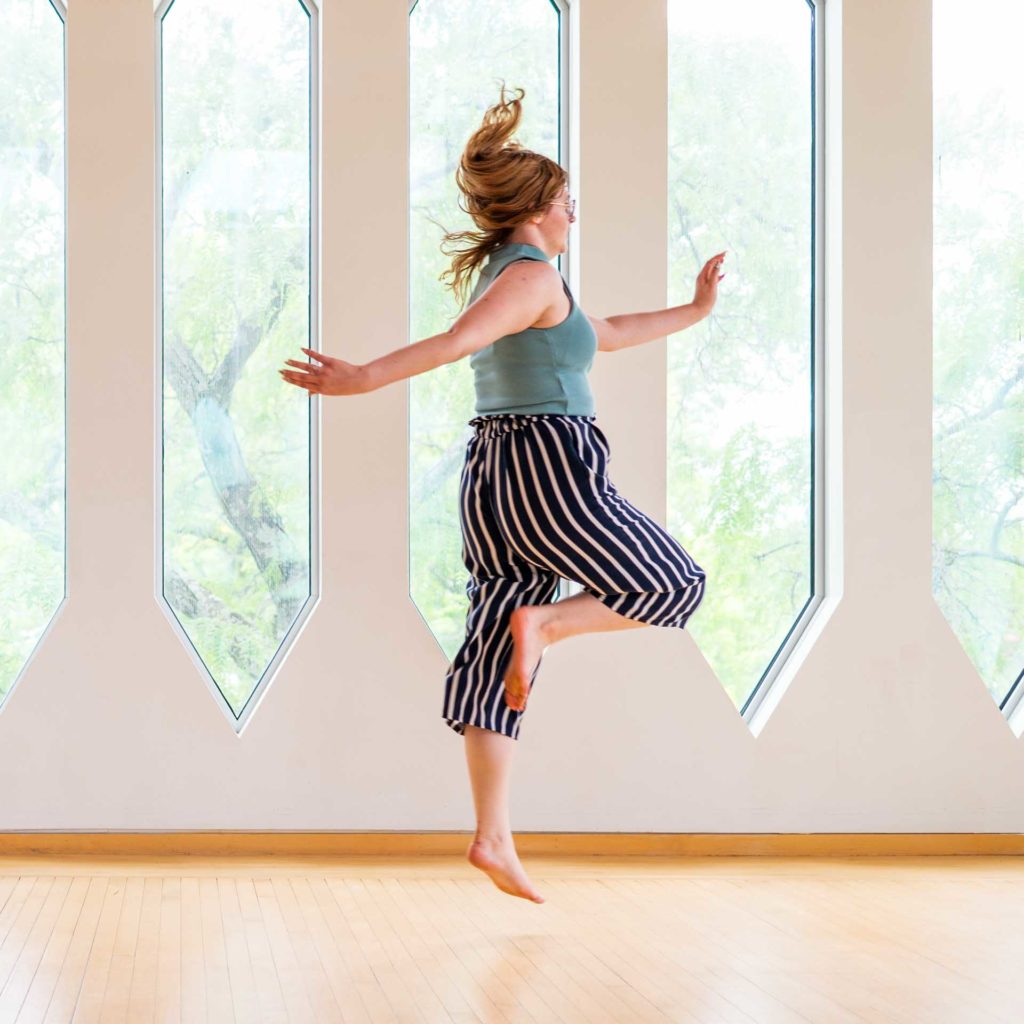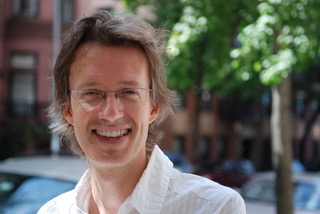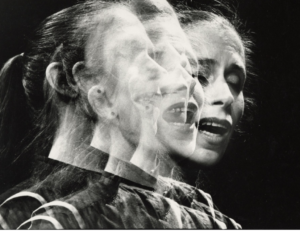
Quick Reactions with a Dalcroze Teacher
This is the inaugural edition of “Quick Reactions with a Dalcroze Teacher”, a new regular feature of the DSA blog. Each month I’ll interview a different Dalcroze teacher. For the premier, I interviewed myself!

Q: Give your “Dalcroze Origin Story” in 50 words or less.
A: My girlfriend (now wife!) was taking classes with Bob Abramson. She suggested I try it. I went to a class and was horrified to discover that I was going to have to skip around the room with my shoes off. Almost 30 years later, I ended up with his job.
Q: Name something that you feel is unique or defining about your teaching:
A: For the past few years, I have been mostly using my own composed music in my classes. Not exclusively, but maybe 75% of time. Dalcroze education is usually applied (at least in this country) to the interpretation of classical music. It’s brilliant at for that, and that is something I wouldn’t change that for the world. I’m first and foremost an improviser rather than an interpretive artist. I’m also don’t work within a specific genre. It makes me a bit of an outlier both in the artistic world in general and in the music education world. A few years ago I decided to embrace that. We’ll see where it goes. In this regard, someone like Meredith Monk, who studied Dalcroze as a child (and who will be in residence at the Lucy Moses School in March 2025) is a big inspiration to me.

Q: Name a musical subject you’ve never used or experienced in a Dalcroze class that you would like to try one day.
A: Timbre. It is such an important part of contemporary music. It was during Jaques-Dalcroze’s time as well but mostly through orchestration. Since then, there have been whole movements and genres of music that put timbre front and center, not to mention how important it is in all kinds of recorded music that people know and love. I think movement (including the sense of touch) really lends itself to the interpretation of timbre. One day, I’ll find a way to try it!
Q: Name a superpower or special skill that you regularly call on in your teaching.
A: The ability to wait in silence for as long as it takes to get a response to a question. I did not have this when I first started teaching, but the older I get, the more comfortable I am with uncomfortable silence. Given enough time, someone will speak. I’m talking about the kinds of reflective, subjective-response questions that require students to verbalize their physical experience. It can take some time for people to reflect and, for some, build up the courage to speak.
Q: Name a superpower of a colleague that you wish you had.
A: Jeremy Dittus’ ability to see exactly how people are moving when he is playing. Even if it is really off in some way, it somehow doesn’t disturb his playing. And he is able to call corrections seemingly effortlessly without the slightest disturbance. Amazing!
Q: Besides teaching and playing music, how do you spend your time?
A: I’m a reader, both fiction and non-fiction. Favorite recent fiction: In Ascension by Martin MacInnes and Martyr! By Kaveh Akbar. Favorite recent non-fiction: The Light Eaters. I also started reading the massive Lyndon Johnson biography by Robert. I know it doesn’t sound that exciting, but it is strangely addictive once you start. I had to take a break, though!
I live in New York City so I try to get around to hear at least a tiny fraction of all the music and art that is happening on any given day here. There are so many things that I miss, but I try! I also enjoy messing up our tiny Brooklyn kitchen on the weekend with various food projects. I’m a fermenter: pickles, sauerkraut, kombucha; sourdough experiments.
Q: If you hadn’t gone into music education, what do you think you would have become?
A: Good question! Not sure. I can imagine myself having become a therapist of some kind. I might have become a visual artist of some kind, though that lay dormant for many years. Not that I have any special talent there, but I do seem to have a certain patience to sit and create something detailed. For a while in my early teens I thought I was going to become a writer. The thing that would have been hard about all of those things was how much time I would have had to spend sitting still. Not that I’m a very restless person, I just recognize how lucky I am to have found something that requires me to keep moving. I am lucky (it was complete luck) to have found Dalcroze!
The DSA thanks the many Dalcroze educators who have changed lives through their work. Please, tell us about the educators who have inspired you or consider a donation to the DSA to support their legacy.